You wanted it to sound good in your own way, on your own terms.
Good in the way that Amon Düül records sound good. And they kind of sound better. If you’re listening on a good hi-fi then old records sound better than new records – new, L3d records. If you’re listening on iPhone speakers then new records do sound better, but I think the people who are listening on iPhone speakers… I’m not bothered about making it sound good on them.
People need to consider their audience more. If you’re not aiming for people to listen on iPhone earbuds or MacBook speakers then it doesn’t really matter what your music sounds like on them.
Exactly. Have some fucking balls. If you’re putting your heart and soul into a record and then squashing the shit out of it so that people can’t really enjoy it, it just seems to me… grow some!
If those were the musical reference points you were rebelling against, what were you being drawn toward? What inspired you?
Quite a lot. In the club world, just the idea of techno, this magical experience, late at night, everyone uninhibited, everyone focussed on the same ritualistic thing. There’s some magic in there. So the idea of taking those pagan ideas and feelings and ceremonial stuff was quite a big inspiration.
Then I had this voyage of discovery of music over the last seven years. It’s been wonderful – I feel like there’s so much I don’t know. We’ve got about three terabytes of music downstairs, most of which we’ve bought and ripped by hand. I still feel like there’s so much that I’m so ignorant about and I’m such a dilettante in so many areas, I’ve still got to learn so much. But stuff like African music and hearing Malian rhythms and the different swing they have. I spent ages loading bars of drumming into Ableton. ‘Why have they got that one that side of the grid line? Weird! That’s why it sounds like that.’
I still feel like there’s so much music that I’m so ignorant about and I’m such a dilettante in so many areas.
Then yeah, the kraut stuff, but I knew I couldn’t make a krautrock album because I’m not German and it’s not the 60s. A load of people did pastiche kraut and not a lot of it worked. Quite a lot of it was terrible.
And kind of all this lo-fi stuff, like Ariel Pink. Not the most recent album because that one didn’t really work for me, but when I first discovered his older stuff. And then Not Not Fun and all these tape releases of synth stuff. All of that was really inspiring.
And also Nathan and Luke. Luke uses his modular in a completely different way to me – he likes sequencing in the modular and step sequencers – but discussing that gave me loads of ideas.
How much has the modular setup replaced the modified and circuit-bent gear you used to use?
Pretty much completely. There’s a modified DR-110 up there somewhere and it took me so long, so many evenings of burning my fingers, and then I’ve used it on three songs on the album and I probably won’t use it again. That’s most of the sounds that are in it.
Which songs is the DR-110 on?
It’s on ‘Rannoch Dawn’ and the ‘The Inheritors’… I can’t remember which one the other one is. I know I used it again on something. Luke has this phrase when you’ve bought a new piece of equipment: “How many songs are in it?” Well that’s got three songs in it and it took me way too long for three songs. Whereas the modular has got a million songs in it.
The Prophet‘s my other go-to synth. Since I got that and the modular I haven’t opened a single soft synth. I just don’t feel the need to do it. Even when I’ve been on tour.
You don’t seem the type to make a big club banger on the plane on the way to a gig.
Definitely not. I’m not sure I believe all those stories. I did write ‘Blackpool Late Eighties’ in a hotel. I was flying back from the States and it snowed here so we got re-routed to Amsterdam and I was gutted because I don’t really like being away and I was really homesick. I went into Amsterdam and bought a big bag of weed, downloaded some free soft synths and made that track in the hotel room, off my tits. I tried to remake it using real instruments and it just never really worked, so the synth parts in that are from some free string synth I found.
You mentioned a little while ago that when you were a teenager you imagined music in clubs would sound like ‘End Of Time’ by The Black Dog and you were disappointed to discover it didn’t. How has your perception of the idea of ‘club music’ changed since then?
My school physics teacher gave me his copy of The Black Dog and I copied it and obsessed over it, then actually I was quite lucky because in Leicester where I grew up there was a free party sound system called Babble who did deep house, so that was the first real club thing I got exposed to in about ‘96 and it was perfect – really relaxed, great atmosphere, pretty cool music. When I went to Oxford it was all sort of hard trance or psy-trance, more like sort of free party techno – Chris Liberator, DAVE The Drummer, that sort of stuff. When you’re really young everything’s exciting and you’re open to everything, so I could enjoy that and I can still see why people do – I’m not writing it off but I can’t enjoy it any more. Once you’ve heard something it’s natural to move on a bit.
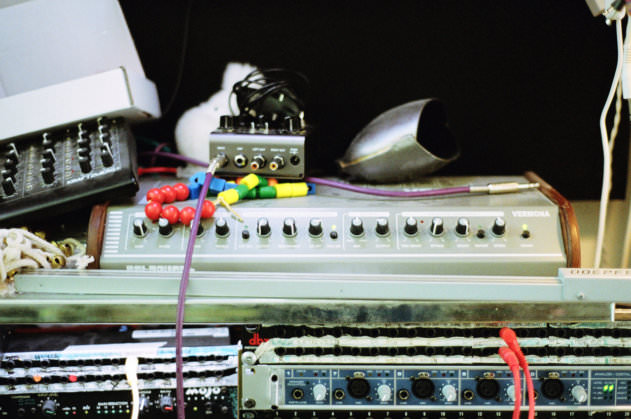 By that point I started to get involved in playing in clubs and you realise there’s a lot of false feedback circles. When DJs play big rooms they can’t see people’s faces or really see their bodies to see how they’re dancing. All they see is that they play a white noise breakdown and everybody on E puts their hands in the air, so they see that as the only reaction they can get, but it’s not really true. That’s not my experience of going to any club. I’ve never done that for a white noise breakdown, but I have enjoyed someone’s music and they maybe haven’t realised much from me other than that I’m dancing a bit.
By that point I started to get involved in playing in clubs and you realise there’s a lot of false feedback circles. When DJs play big rooms they can’t see people’s faces or really see their bodies to see how they’re dancing. All they see is that they play a white noise breakdown and everybody on E puts their hands in the air, so they see that as the only reaction they can get, but it’s not really true. That’s not my experience of going to any club. I’ve never done that for a white noise breakdown, but I have enjoyed someone’s music and they maybe haven’t realised much from me other than that I’m dancing a bit.
I’m not the most confident person in the world so it took me quite a long time to figure all this out but as it’s become clearer and clearer in my head it’s made DJing a lot more fun, realising that your job is just to play good music really. It’s got easier. I can’t play a big room festival tent and have everyone wave their arms in the air, but I wouldn’t want to be one of those people in the crowd either.
Has that idea of the communal late night techno experience become more important to you?
It’s just what’s special about a club when it works, when there’s that whole atmosphere in that room, you can feel it and everything flows on from the next thing and builds and builds. It definitely doesn’t happen every time – it’s not just the DJ or the promoter or the crowd, it’s a whole combination of things. What the weather’s been like, what mood people are in, what’s been in the news. Everything feeds into it.
It kind of came up in the research I did for that Barbican lecture. When people duet, their brain waves form matching, synchronised patterns. When you listen to music your brain syncs to the rhythm but if you’re playing music that level of synchronisation is much higher. If you’re dancing it’s very hard to measure because if you’re moving it’s basically impossible to do EEG measurements, but it would follow that if you’re dancing you’re as involved in the music as a musician.
Going to band shows can be very staid, venues like the Luminaire with ‘no talking’ signs. It’s very stiff. The wilder thing in a club where people are half tuned in, half out and wandering back and forwards in their attention, it seems less respectful but actually I think it’s more engaged with the music than going to see a band. I kind of felt like I wanted to go somewhere in between the two and make music that’s still satisfying to listen to but it’s part of this magical experience thing, which is primal. The best things in life are these primal coincidences of how your brain works. Drugs and sex and dancing and love – it’s all just animal stuff in your head. I’m trying to unlock that and have real experiences, not just meaning-based experiences or hype.
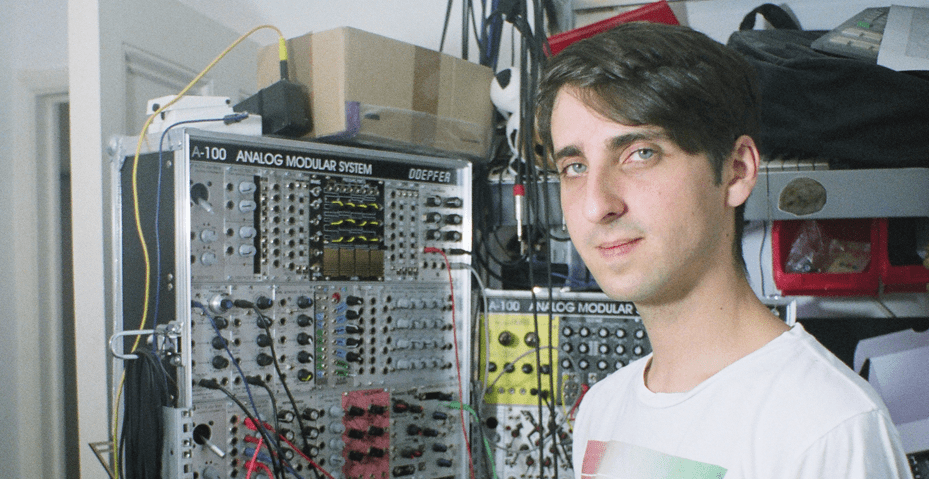
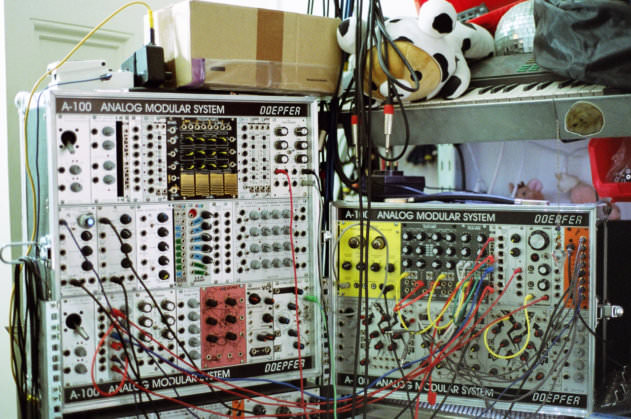
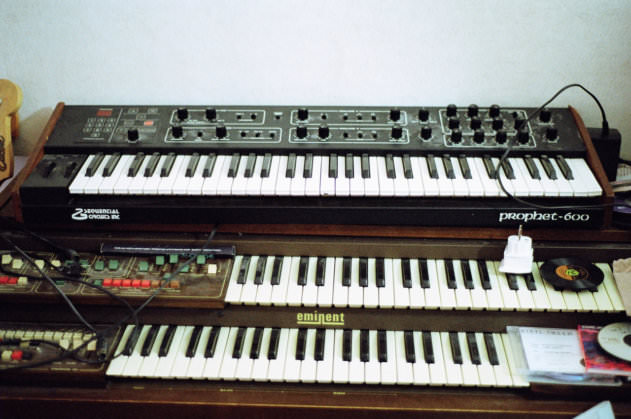
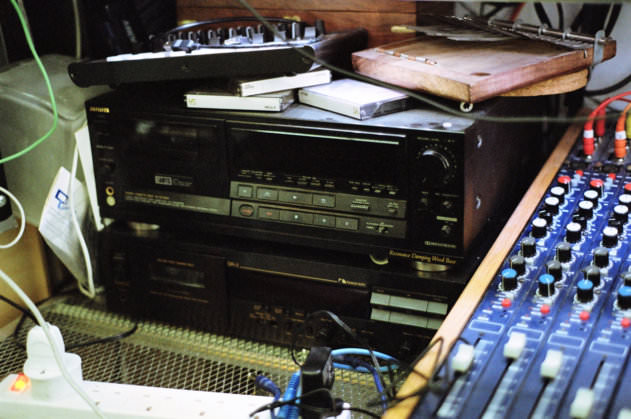
08.12 PM
Holden is a great producer! Nice words from him. And congratulations for the interview folks 😉 keep doing
12.37 AM
Too many quotables in this interview.
“But most of the people who tell me they’re producers don’t even think of the aesthetic of what they’re doing at all”
“Loads of people in dance music think that even though they’re not making Guetta-house they can use the same production techniques as Guetta and it’s still OK. To me that’s like… functional, spray-tan music.”
“it’s just like, what are the Berlin lot even doing now? What are you thinking? You’ve forgotten what it’s about!”
“I can just shit out a melody”
I don’t always love James’ music but he’s always interesting. You can really tell from this interview that he analyses everything he does, maybe too much, but that’s what being an artist’s about. Too many people only think about the money or making big crowds of idiots dance. Electronic music can be about so much more than that.
Going to check out the new album now.
12.37 AM
It’s good to be misunderstood! U only have to understand it yourself
11.56 AM
Im inspired to try and sh*t out some melodies later – it could get messy 😉
12.02 AM
Inspiring interview. I feel like a lot of people might not get Holden’s sense of humour and he sometimes comes across quite badly in interviews but this one really reveals a lot about him as a person and an artist. Refreshing to hear such honesty about running the label and the pressures to keep up the DJ appearances in order to make money. A quick look at the BC releases over the last few years and you can kind of guess which artists he might be referring to when he talks about that sense of entitlement.
01.26 PM
thanks so much for this. makes me want to rush home from work and make some music
02.50 PM
yeah, thanks a lot for letting us knowing bit more of james. it seems he also enjoyed it and thats the reason why the interwiew is soo good
03.57 PM
this is the case where intelligence makes a musician stand out.